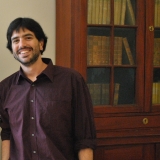Abstract
Urban green spaces increase population wellbeing because they provide for recreational possibilities, as well as with many other benefits that are not related with direct use, like air purification, landscape aesthetics, or flood control. The objective of this paper is to estimate the effect of proximity to and size of urban green spaces on housing market values. We implement a hedonic price model to test the effect of distance from and size of three types of urban green spaces in San Jose, Costa Rica: i. non-developed natural areas, ii. metropolitan parks, and iii. neighborhood parks. The results show that individuals assign substantial value to the restoration of non-developed green areas, proximity to large urban green spaces, and the size of neighborhood parks. We also found that urban green spaces correlate with those values declared by house owners only, i.e., not by house renters. The results for non-developed natural areas are the opposite of those from developed countries. This paper can help to inform urban planning policies, by giving insights into the effect of urban green spaces on the value of capital assets and human wellbeing. Additionally, we administer our own socioeconomic survey to gather original data on house market prices in developing countries, due to the lack of such data. The paper contributes to the literature by showing the relevance of conducting site-specific studies, and by offering a methodological approach to close the gap in information available on developing countries.
Highlights
- Urban green spaces increase the well-being of the population because of many benefits.
- Parks bring recreation, but also non-developed natural areas supply other services.
- We test the effect of proximity to and size of green spaces in San Jose, Costa Rica.
- Individuals assign substantial value to the restoration of non-developed green areas.
- Proximity to large parks and the size of neighborhood parks are highly valued.
